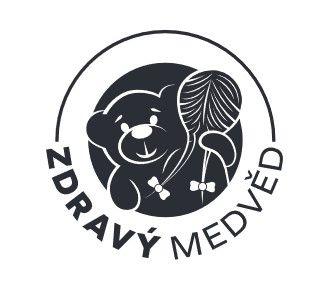Stinging nettle
Latin name: Urtica dioica
Characteristics: Nettles are perennial plants originating from Europe and growing in the USA and Canada. U. dioica and U. urens are botanically very similar, are often distributed together in the wild, and are considered therapeutically interchangeable. Nettle has an upright stem that grows up to 1 m in height. It has dark green serrated leaves that grow against each other and stinging trichomes (hairs) that release irritants on contact. The plant blooms from June to September and its fruit are small oval yellow-brown achenes. Nettles are considered nutritious plants and were therefore used to treat scurvy. Today, the tender ends of young nettles are added to salads. Although nettle is known for its stinging properties, it is used in traditional medicine as a diuretic (diuretic), antispasmodic (for spasms) and expectorant (for coughing), as well as in the treatment of asthma. Leaf extracts are used topically to treat rheumatic disorders. Other applications include wound healing, scalp seborrhea and oily hair. Soothes scalp inflammation, strengthens hair, can help stimulate hair growth and has antimicrobial properties.
Constituents: Constituents vary depending on the part of the plant. Phenolic compounds (flavonoids and phenolic acids) were identified in the root, stem, and leaves. Compounds of possible clinical importance include root lignans, lectin, U. dioica agglutinin, steroid compounds, and polysaccharides. The leaves contain high concentrations of vitamins A, C, D, E, F, K and P as well as B-complex vitamins. They also contain significant amounts of selenium, zinc, iron, and magnesium. The plant has been used as a commercial source of chlorophyll and carotene. Nettle trichomes contain histamine, serotonin, and choline. Nettle fruits contain protein, mucilage, and oil.
Dietary Supplements: Nettle supplements are commonly available in the form of capsules, gummy bears, tinctures, water-soluble powders, tablets, and teas. The most used dose is 250‒300 mg.
Effect: Nettle is primarily used in the treatment of benign prostatic hyperplasia (BPH), diabetes and arthritis. It works against hair loss by reducing inflammation in the scalp, neutralizing free radical damage, and blocking dihydrotestosterone (DHT). Dihydrotestosterone or DHT is a sex steroid and androgenic hormone that our body naturally synthesizes from testosterone. About 5-10% of circulating free testosterone is converted to DHT by the enzyme 5-alpha reductase. DHT is believed to be largely responsible for hair loss and male pattern baldness. Stinging nettle contains components that can significantly inhibit the activity of the 5a-reductase enzyme. It has also been shown to have antimicrobial properties that can help fight dandruff. Finally, nettle, as a rich source of vitamins and minerals, strengthens the hair.
Recommended daily dose: Recommended doses are not precisely determined and are derived from clinical studies. Aqueous extracts of the root at doses of 360 mg per day for 6 months and methanolic extract of the root at doses of 600 to 1200 mg per day for 6 to 9 weeks have been used in BHP therapy. Doses of 600 mg of freeze-dried nettle leaf were used in a clinical trial studying its effect on allergic rhinitis.
Adverse effects: Nettle preparations are generally well tolerated. They cause increased urination, and mild and transient gastrointestinal side effects, including diarrhea, stomach pain, and nausea, have also been reported. However, stinging nettles are best known for their ability to cause acute urticaria upon contact with exposed skin. In rare cases, they can cause a serious allergic reaction.
Interactions: Potentially interacts with diabetes medications due to their ability to lower blood sugar. Taking insulin or other blood sugar-lowering medicines can lead to dangerously low blood sugar. The aerial parts of nettles contain a large amount of vitamin K, which can reduce the effects of the blood-thinning drug - warfarin. Taking nettle along with diuretics can cause potassium levels to drop.
Contraindications: Should not be used on children under 12 years of age.
Pregnancy: Because of the metabolism of androgens and estrogens, nettle preparations are contraindicated.
Breastfeeding: Because on the metabolism of androgens and estrogens, nettle preparations are contraindicated.
Toxicity: Oral toxicity of nettle preparations is considered low.
Stinging nettle
Chat with us on WhatsApp



